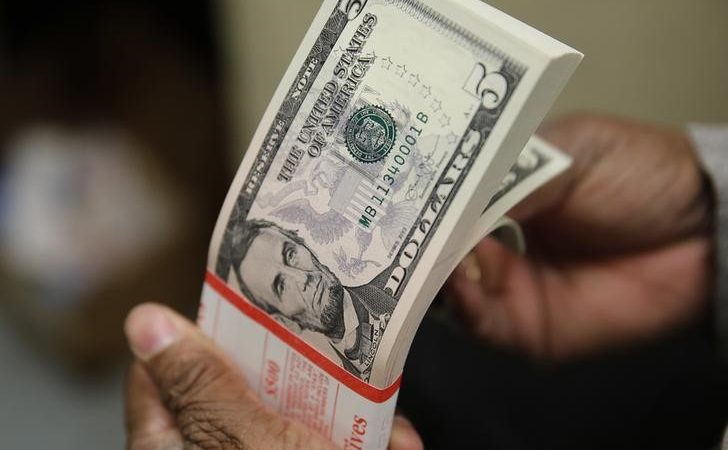
Dollar stabilises after selloff; focus on North Korea, Hurricane Irma
By Lisa Twaronite and Masayuki Kitano
TOKYO/SINGAPORE (Reuters) – The dollar edged higher on Monday, pulling away from last week’s lows against its major rivals after North Korea marked the anniversary of its founding without resorting to any further missile or nuclear tests.
Instead North Korea observed the 69th anniversary of its founding on Saturday with a celebration honouring the scientists behind the massive nuclear test it conducted last week.
The dollar added 0.5 percent against its perceived safe-haven Japanese counterpart to 108.42 yen <jpy=>, moving away from a 10-month nadir of 107.32 yen touched on Friday. The yen tends to benefit during times of economic and political uncertainty due to Japan’s net creditor nation status.</jpy=>
Relief over the lack of further provocative action by North Korea has led to short-covering in the dollar, said a trader for a Japanese bank in Singapore.
“I think this shows that the market had been a bit panicky on Friday, on fears over weekend risks,” the trader said.
The dollar index, which tracks the U.S. unit against a basket of six major currencies, was 0.2 percent higher at 91.522 (DXY), after skidding to a 2-1/2 year low of 91.011 on Friday.
“If you look at all the factors, it’s not necessarily negative overall for the dollar,” said Masafumi Yamamoto, chief forex strategist at Mizuho Securities, citing the relative strength of the U.S. economy and investors’ hope that a U.S. tax reform plan will eventually be passed.
Still, he said, concerns about the simmering tensions on the Korea peninsula remain a source of pressure on the dollar, as well as the possible hit to U.S. growth from Hurricane Irma as it ravaged Florida.
U.S. President Donald Trump said on Saturday that he will ask the Republican-controlled Congress to further speed up its efforts to overhaul the U.S. tax code, citing the potential impact of Hurricane Irma as a reason to hasten reforms.
The euro was down 0.2 percent at $1.2013 <eur=>, after it rose as high as $1.2092 on Friday, its loftiest since January 2015.</eur=>
Despite the strength of the common currency and prospects for further gains on expectations of a turn in monetary policy, the European Central Bank has signalled it is gearing up to taper its massive stimulus programme.
Reuters reported on Friday that ECB policymakers agreed at their meeting on Thursday that their next step would be to begin reducing its bond buying, three sources with direct knowledge of the discussion said.
The dollar also rose against the Chinese yuan, which pulled away from a 21-month high set on Friday. The yuan has gained 6.8 percent so far this year, having more than made up the nearly 6.6 percent drop it suffered in 2016. [EMRG/FRX]
China’s central bank plans to scrap reserve requirements for financial institutions settling foreign exchange forward yuan positions with effect from Monday, four sources with direct knowledge of the matter said on Friday.
“The short term impact of this is that there are now fewer restrictions on banks’ dollar purchases. One interpretation is that the pace of CNY appreciation has taken the PBoC, as well as the market by surprise,” ING economist Iris Pang said in a research note.
“We believe that CNY appreciation will continue, but at a slower pace from now on.”
Meanwhile, bitcoin rose 1.9 percent to $4,306.85 (BTC=BTSP) on the BitStamp platform, regaining some ground after tumbling late last week. Bitcoin had slid 6.6 percent on Friday, after reports that China was about to shut down local crypto-currency exchanges.


